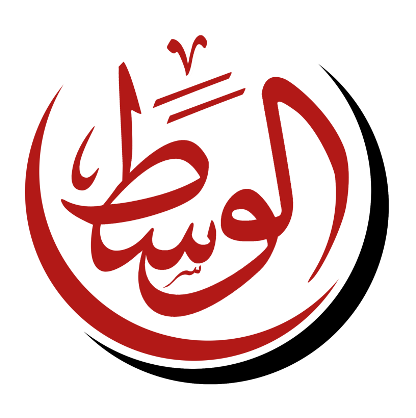Fewer than usual movies from the Middle East are in the front line at Cannes 2010, but the industry is nonetheless booming despite censorship, security and funding concerns in a region constantly grappling with instability.
Iran, which can claim one of the region’s most distinguished filmmaking traditions, is represented at Cannes this year by its celebrated director and 1997 Palme d’Or winner Abbas Kiarostami with "Copie Conforme" (Certified Copy), shot in Italy and starring Juliette Binoche.
Israel, which has made a strong show at international festivals in recent years with movies that tackle decades of conflict with its northern neighbor Lebanon, also landed a spot in the Directors’ Fortnight with Avishai Sivan’s debut feature "The Wanderer."
It is the latest in a string of internationally-acclaimed films to come out of Israel, which include "Ajami," nominated for Best Foreign Language film at this year’s Oscars.
Offering a rare look at the country’s Arab minority, Ajami is the third Israeli production to be nominated for an Academy Award in as many years after "Beaufort" (2007) and "Waltz With Bashir" (2008) — both of which deal with Israel’s 18-year occupation of south Lebanon that ended in 2000.
But Palestinian filmmakers too have made waves recently at Cannes, including Arab Israeli Elia Suleiman last year with "The Time That Remains" and in the previous year, Gaza-born Rashid Masharawi with "Laila’s Birthday" and Bethlehem-born Annemarie Jacir for "Salt of This Sea."
Iran’s 2010 Cannes entry is emblematic of the censorship, security and funding concerns facing filmmakers in the region.
Kiarostami, whose script shows an English writer hitting it off with a French art dealer, has shot only one feature in Iran since 2003.
That movie, "Shirin," which was shot in 2008, has not been screened in Iran, although it is unclear whether the director made any attempts to have it shown.
Despite several Iranian movies winning awards at prestigious international festivals since 2005, when hard-line President Mahmoud Ahmadinejad came to power, movie makers complain about increased pressure and censorship.
Even under the reformist government of Mohamad Khatami, when artists enjoyed relative liberty, Kiarostami’s last two feature films "Ten" (2002) and "The Wind Will Carry Us" (1999) were banned from Iranian theaters.
Cannes has encouraged other independent Iranian directors in the past, screening the black and white "Persepolis" animation about coming of age in the Islamic republic, which won an award in 2007, and "Nobody Knows about the Persian Cats" last year.
But both films prompted angry condemnation from Iran’s hard-line authorities, and the French film festival appears to have distanced itself from productions officially pitched to the organizers
Cannes has also become a springboard for films from other countries in the region, notably from Lebanon, which has produced movies exploring topics from exile to gender and sexuality.
Films like Ziad Doueiry’s "West Beirut" (1998), Josef Fares’ "Zozo" (2005), Philippe Aractinji’s "Under the Bombs" (2006) and Nadine Labaki’s "Caramel" (2007) have resonated with audiences from Cannes to Toronto in recent years.
"Caramel" showcased the other side of a country long associated with violence — and landed at Cannes Directors’ Fortnight along the way.
"The idea people had of Lebanon is different from what they saw in ‘Caramel’," Labaki told AFP at her home in Beirut. "They discovered the warm, colorful people of a sunny country."
But the topic of choice for Lebanese films remains the country’s bloody 1975-1990 civil war, which killed more than 150,000 people and left countless others maimed, displaced and scarred for life.
War has also proved to be an inspiration and an obstacle for Iraq’s film industry.
Although never a major filmmaker in the region, the collapse of security in the aftermath of the US-led invasion in 2003 has made it extremely dangerous to shoot movies.
But a couple of Iraqi films have reached wider audiences more recently as security has improved, most notably "Son of Babylon," directed by Mohamed Al-Daradji, about a boy and his grandmother travelling across the country to search for his father in the wake of the invasion.
The film won two awards at the Berlin International Film Festival in February, the Amnesty International Film Award and the Peace Film Award.
And Shawkat Amin Korki’s "Kick Off," about a young refugee who organizes football matches in the disputed city of Kirkuk after the invasion to lift the spirits of the locals, also picked up an award last year, at South Korea’s Pusan International Film Festival.
Even Jordanian filmmakers have made their mark on the world scene in recent years.
"Captain Abu Raed" (2007), about an old airport janitor befriending children from his poor neighborhood, won a batch of awards including at US film festivals Sundance and Heartland.
"I think the annual Cannes Film Festival gives great exposure to Middle East films," said Nada Doumani, communication and culture manager of Jordan’s Royal Film Commission.
But with violence hampering Iraq’s film industry and conservative Muslim beliefs and government interference driving some of Iran’s best filmmakers abroad — and prompting the Saudi authorities to ban cinemas altogether — it will take a lot more than international exposure to get the Middle East film industry flourishing.
Š Θ
Θ
#

#
Actor Shahir Qabaha (C), 25, acting a scene from the film "Ajami." (AFP photo/HO)
#
@

